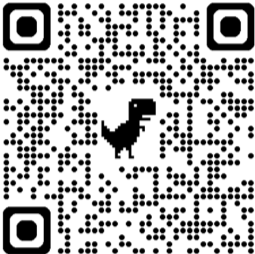891 DEI, Advocacy
CNS 891 advocacy, DEI
Create multiple-choice games on Wisc-Online and play them on our Chakalaka mobile app!
But that's not all! Explore educational games created by others. Simply search by category or enter agame code number and dive into a world of learning and fun.
Download the Chakalaka mobile app here:

Topics of this game:
- One’s ability to act upon or influence a situation with meaningful understanding
- The shared experiences of acts, beliefs, values, language, attitudes, words, institutions, rules, rituals, images, spiritual practices, knowledge, and relationships which are sharped and articulated within social systems.
- Socially constructed concept, an ethnological human stratification that was used to determine who gets what
- Prejudice, discrimination or antagonism directed against a person or people on the basis of their membership of a particular racial or ethnic background. Typically one that is a minority or marginalized and the power to exert said prejudice, discrimination, or antagonism
- The following defines structural racism:
- The following describes the trauma of racism...
- This is a form of bias that occurs automatically and unintentionally that affects judgement, decisions, and/or behaviors.
- Essentially different in kind, not allowing comparison
- Treating everyone the same
- The practice or quality of including or involving people from a range of social and ethnic backgrounds, including gender and sexual orientation.
- Making sure everyone is starting from a level playing field.
- Bridge to justice
- Giving everyone varied interventions based on what they need
- What does SCARF stand for?
- Principles of conduct governing individuals or group
- Specific beliefs, behaviors, and ways of being, heavily influenced (culture, religion). Universal
- Ideals, beliefs, customs, qualities; influence behavior, formally or informally. Individualized
- Abstract thought or creative cognitive processes to solve problems/answer moral/ethical questions
- Working on another’s behalf, representing the concerns pf the patient/ family. Community and serving as a moral agent in identifying and helping to resolve ethical and clinical concerns within the clinical setting
- A level 1 CNS has the following actions in terms of advocacy and DEI....
- A level 5 CNS has the following actions in terms of advocacy and DEI....
- A level 3 CNS has the following actions in terms of advocacy and DEI....
- The acute care CNS makes decisions and implements actions to ensure the delivery of safe, competent, and ethical care that is age appropriate and congruent with patient and family needs and values.
- This level CNS demonstrates highest level of moral agency, also demonstrate exemplar ethical expertise.
- This level CNS agency shows up as one’s ability to plan and order the clinical priorities patient and family care
- This level of CNS attempts to manage patients care according to specified orders and plan of care
- The CNS has been asked to colead a GRN program to provide education on GRN related issues. This is an example of what CNS role?
- The local community council in a rural area has been asked to establish a public health center. A lot of members face socioeconomic consequences such as trouble accessing HC, lower income, and lack of availability of HCP. The CNS was asked to provide guidance for the project as a paid consultant. What is the most appropriate action?
- Which is NOT a reason autonomy is overruled?
- The ability to recognize differences and the sensitivity necessary in dealing with different ethnic individuals
- It is the ability to recognize, appreciate and incorporate differences into care and treatment
- Which of the following is NOT Response diversity look like as a Novice (Level 1)?
- Which is NOT a Response diversity look like as a Competent (Level 3)
- Which is NOT a Response diversity look like as an Expert (Level 5)?
- Refers to unconscious attitudes or stereotypes that affect our understanding, actions, or decisions.
- Common expression of oppression - When the standard dominant group is considered to be the norm
- Response to diversity in Nurse/Nursing Practice SOI?
- Response to diversity in patient/family SOI?
- Response to diversity in Systems/Organizations SOI?
User comments are currently unavailable. We apologize for the inconvenience and are working to restore this feature as soon as possible.

